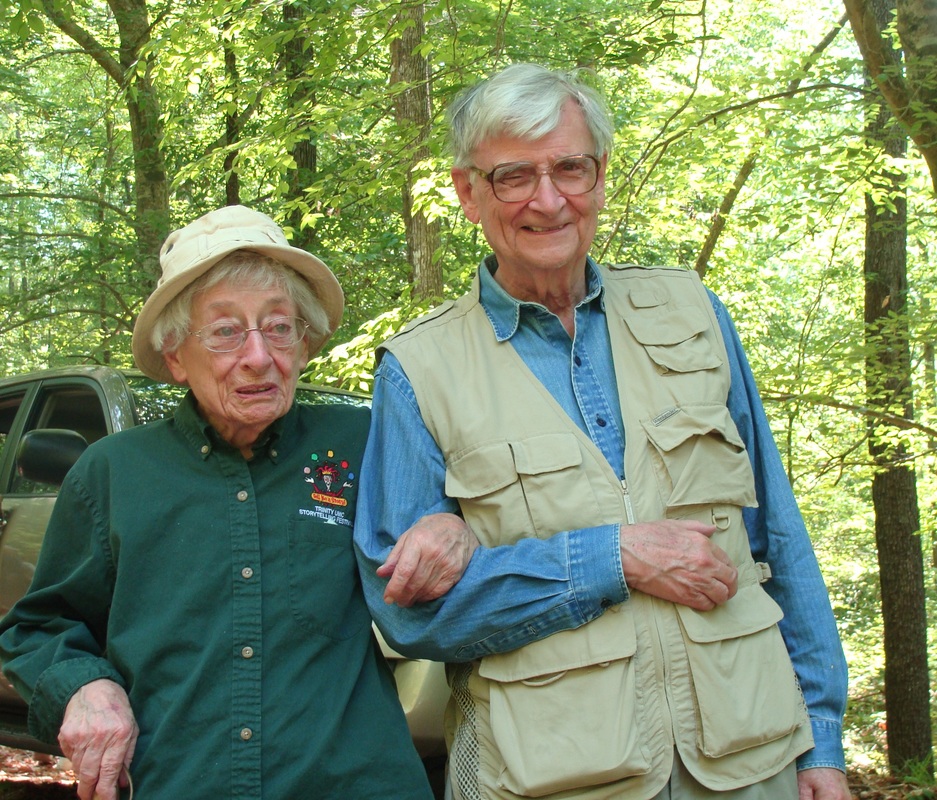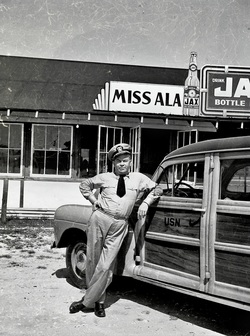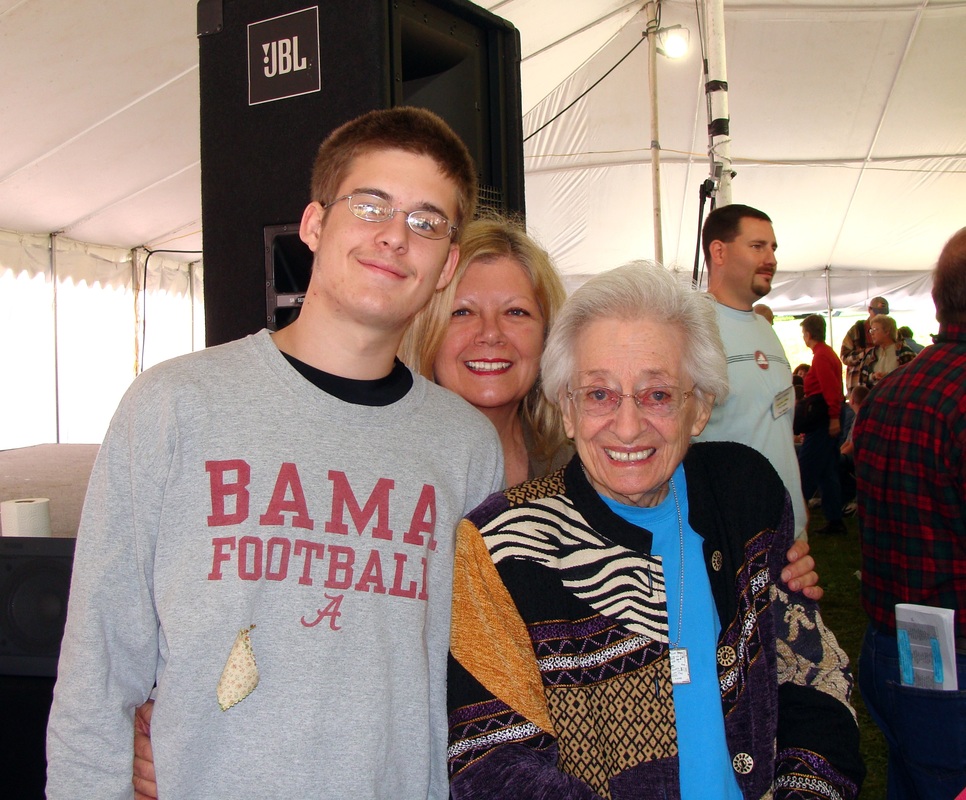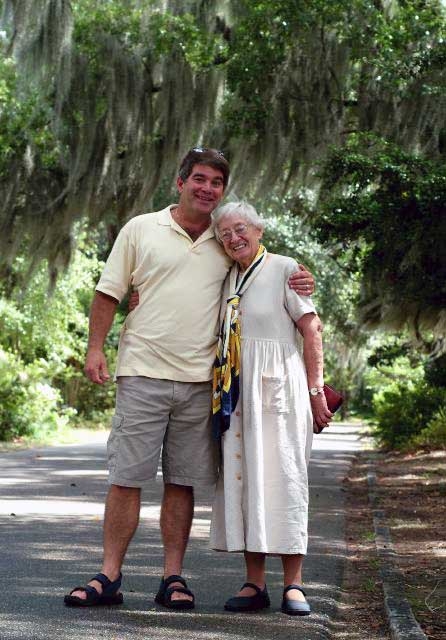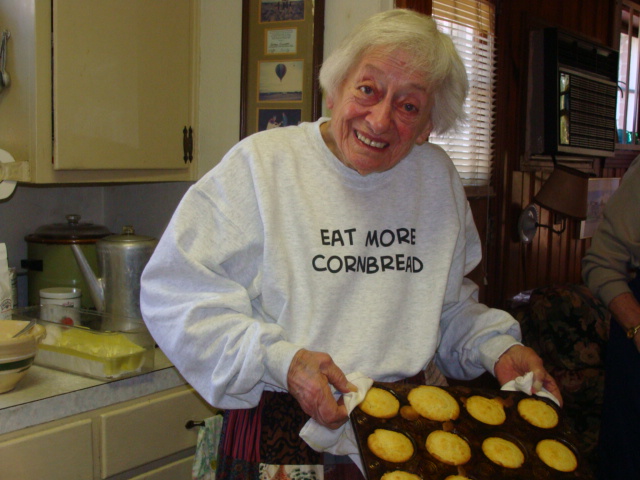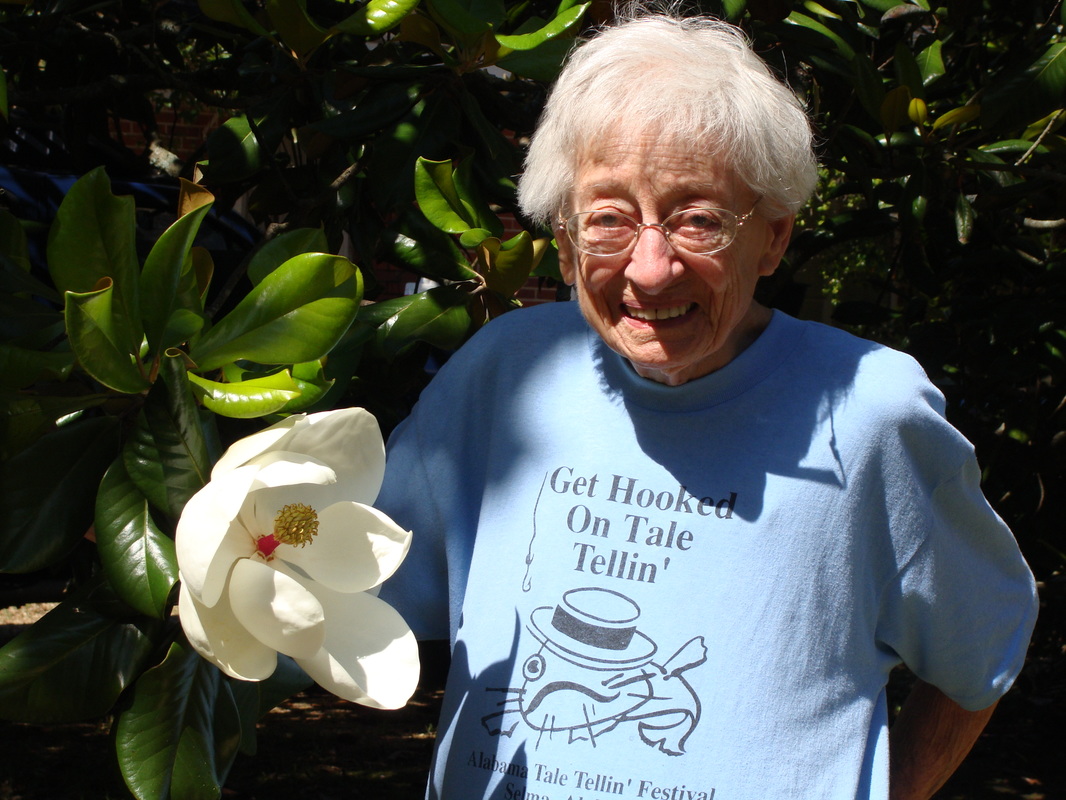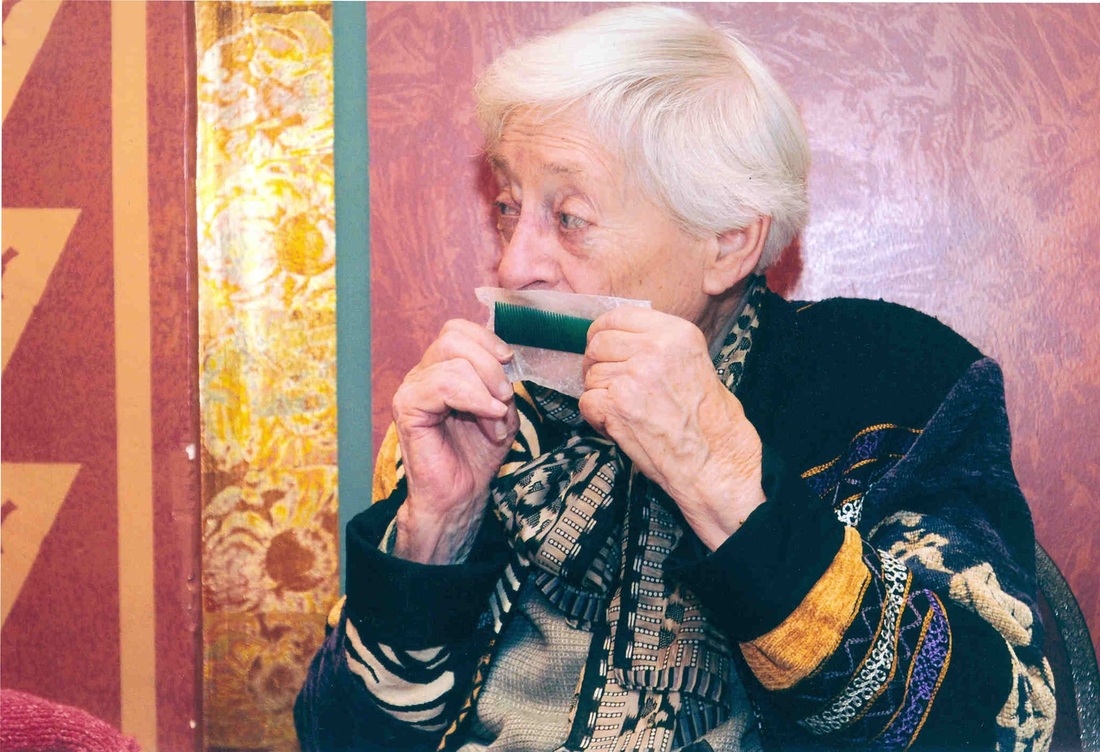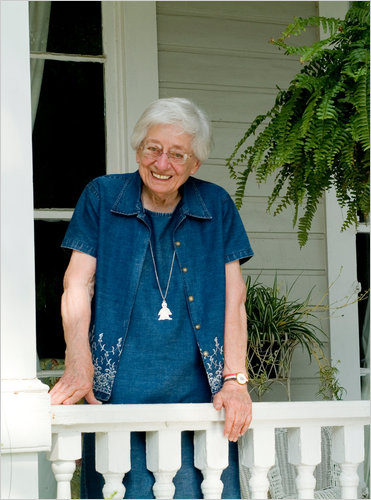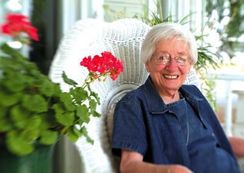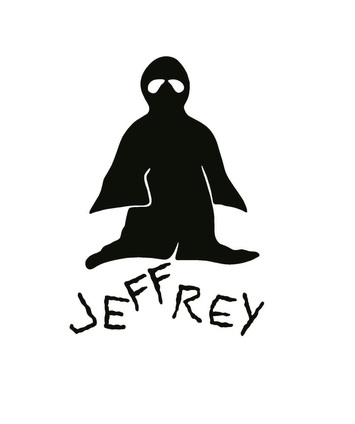|
When Mother died in 2011, she left us a house full to family treasures in the form of photography. She also left us libraries of books, many signed by the author, that ranged from Indian lore to the classics. My brother, Ben, said it was like sifting through the Library of Congress.
But it was the trove of photographs that slowed our clearing out work. Not ones to toss memories aside, Ben and I enjoyed poring over every family picture, recalling what we could remember and wishing we still had someone to ask about others. It took us well over a year to sort through, lay claim to, and eventually clear out all the sweet fragments of people’s lives from the “archives” at 2004 Royal Street. I now have in my basement bins of pictures and correspondence and other material of interest to probably no one but me. Somebody else can do the second round of sorting when I’m gone. But the photographs that everyone seems interested in are those disappearing scenes of the South that my mother made through the years, beginning with her Brownie box camera when she was 12. The first picture she ever took was of an elderly woman standing at a spinning wheel. Mother told me her daddy took her out to the country with him not long after she got that camera, and they stopped at the woman’s house to visit. And Mother took a picture. She took pictures throughout her travels in the South. She made photographs of country stores, of clothes hung on fences to dry, of haircuts in a front yard, of old Army veterans. Her interest in the South’s people and places was insatiable. Her photography was eventually discovered by a friend and expert in the field who encouraged Mother to haul out the negatives and have them professionally printed for exhibition. Several museums around the Southeast organized shows of her work, and her photographs were printed with accompanying stories in a book called Encounters. I believe the photograph my mother liked most from her decades of making pictures was one of a woman holding a rooster. Mother said she saw the woman walking down a country road carrying a rooster. Mother didn’t get far down the road before it registered with her that she should take that picture, so she turned around. This is a portion of the way Mother describes the encounter in her book: She posed with dignity and a fleeting touch of humor, holding the bird against her white shirt to dramatize his bright feathers. When I asked if I might give her a ride, she declined, saying, “I ain’t got far to go.” I wish I knew what happened to the rooster. He appeared to be too young to be consigned to the stew pot. His colorful plumage (the golds and greens purely sparkled in the sunlight) and his long spurs bespoke game chicken ancestry, so he may have been on his way to a fight. Or perhaps a happier future awaited him as lord of the new chicken yard. Whatever his fate, I wish I had a few of his feathers to decorate my own straw hat. ---Kathryn Tucker Windham
1 Comment
The Kathryn Tucker Windham blog is written by her daughter, Dilcy Windham Hilley.
Mother attracted all manner of people from all walks of life. She knew farmers and fiddlers and fortunetellers. She had friends who were writers and wrestlers and rednecks. Small people and large people and people of questionable reputation---all those and more were Mother’s friends and acquaintances. Of course, many of her associates were fans of her books and her storytelling. In the years she appeared at the National Storytelling Festival in Jonesborough, Tennessee, adoring fans swarmed, and she made time to speak with every one of them. At her funeral, her minister spoke of how she ended every phone conversation with him by saying, “I love you, Fred.” He thought it was a term of endearment reserved only for him. He had no idea she ended nearly every phone conversation with that same expression of love. It’s small wonder that people adored my mother. Famous people also were part of her collection of friends though she wasn’t always aware of their fame. When Jessica Lange was in Montgomery filming the box office hit Big Fish, one of Mother’s acquaintances there asked Jessica if she’d be interested in driving over to Selma to see Mother’s photography. With her own interest in photography and published books of her work, Miss Lange was delighted by the invitation. The night before Jessica was to arrive, I spoke to Mother on the phone. She told me she was having company from Montgomery the next day. She told me it was someone working on a movie there, and she was coming with Mother’s friend. When I asked who it was, she said, “Oh I have it written down here somewhere. Let’s see…it’s a woman named Jessica Lange.” Mother and Miss Lange had a fine visit at the small house with the long pine table, and they stayed in touch for years. Being the daughter of a beloved Alabama author and storyteller had its advantages. I often got to accompany Mother on her visits with the famous and celebrated. One such occasion was a brunch given to honor the reclusive author, Harper Lee. Mother was invited to come and bring two or three friends with her to a private home in the tony Birmingham suburb of Mountain Brook. Along with me, Mother chose to bring one of my peers who is a superb photographer. Now this photographer friend is talented with a camera but has never been accused of being bookish. When we arrived, Mother introduced our friend to Miss Lee, and they exchanged pleasantries. Then to my astonishment, our friend said, “You know, I’m probably the only person in Alabama who’s never read your book.” Miss Lee never miss a beat. She looked at him and said, “Well go buy one, son. It’ll be another quarter for me.” Then there was the visit from Gay Talese, but that’s a story for another time. Unless otherwise noted, the Kathryn Tucker Windham blog is written by her daughter, Dilcy Windham Hilley. Entertaining three children on a newspaper reporter’s salary must have been a challenge for my mother. We had friends with vacation homes at the beach and at the lake, and they invited us to go with them from time to time. But those trips were few and far between, so Mother created more economical pastimes for us. My brother’s interest in fossils and Indian artifacts was limitless, so often on Sunday afternoons, we would pack a picnic and go to Marion Junction, a small community just outside of Selma. Marion Junction had roadside cuts rich in lime and a treasure trove of shark teeth. The teeth are relics from an ancient past when most of the southern half of Alabama was underwater. We would spend hours combing the banks along the side of the road for the prehistoric dental remains. Other Sunday afternoons, especially in the spring when the fields outside Selma were newly plowed, we would hunt for arrowheads. Quartz arrowheads were common, but, on occasion, we would find coveted bird points and Clovis points to add to my brother’s growing collection. One afternoon while we were scouring a field, some children from across the road came over to investigate our activities. We showed them the little spears we had come in search of, and our new friends began to search along with us. Mother told them she would pay them for the arrowheads they found---10 cents for common ones and a quarter for the special finds. Those country children were set on becoming young entrepreneurs in the business of Indian artifacts. We would stop by their house, not much more than a shanty, every few weeks to see what they had collected. When we pulled up in their yard, the children would rush out the door and yell, “Here come the rock lady!” We would exchange their finds for the agreed upon rate. It was satisfactory for both parties and a grand way to spend a Sunday afternoon. Unless otherwise noted, the Kathryn Tucker Windham blog is written by her daughter, Dilcy Windham Hilley.
My brother, Ben Windham, was the meanest big brother on the planet. He teased me mercilessly and forever damaged my inner child. He rocked us zealously at the top of the Ferris wheel. He played horrible tricks on me and made me be the decoy for the enemy when he and his buddies had clay ball fights in the woods behind our house. I adored him. Mother often left me in his care when she had errands to run or business to attend to. Not for long stretches. Just long enough for Ben to torture me with my own ignorance. On one such day when Mother was out buying groceries, Ben called me to the kitchen to participate in his newly discovered “magic trick.” He took a glass from the cabinet and told me to light three kitchen matches, blow them out, and put them in the glass. I obeyed every wicked order. He then got a broom from behind the kitchen door and had me climb on a stool and hold the glass with the burned matches against the ceiling. I was riveted. He put the broom handle under the glass and had me climb down and hold the broom so the glass didn’t fall. Then he left the kitchen. I pleaded with him to come back and help me, but all I got was evil laughter from down the hall. I balanced that broom handle under the glass until my little sucker arms could bear no more, and I let the glass fall and shatter all over the kitchen floor. When Mother returned, I was crying and sweeping up glass with the very broom that caused my situation. Between sobs, I told her every detail of the vile incident. She never turned from unpacking the groceries. She said, “This should be a lesson to think before you do what people tell you to do. The sooner you learn that, the better.” My mother knew a lesson taught. 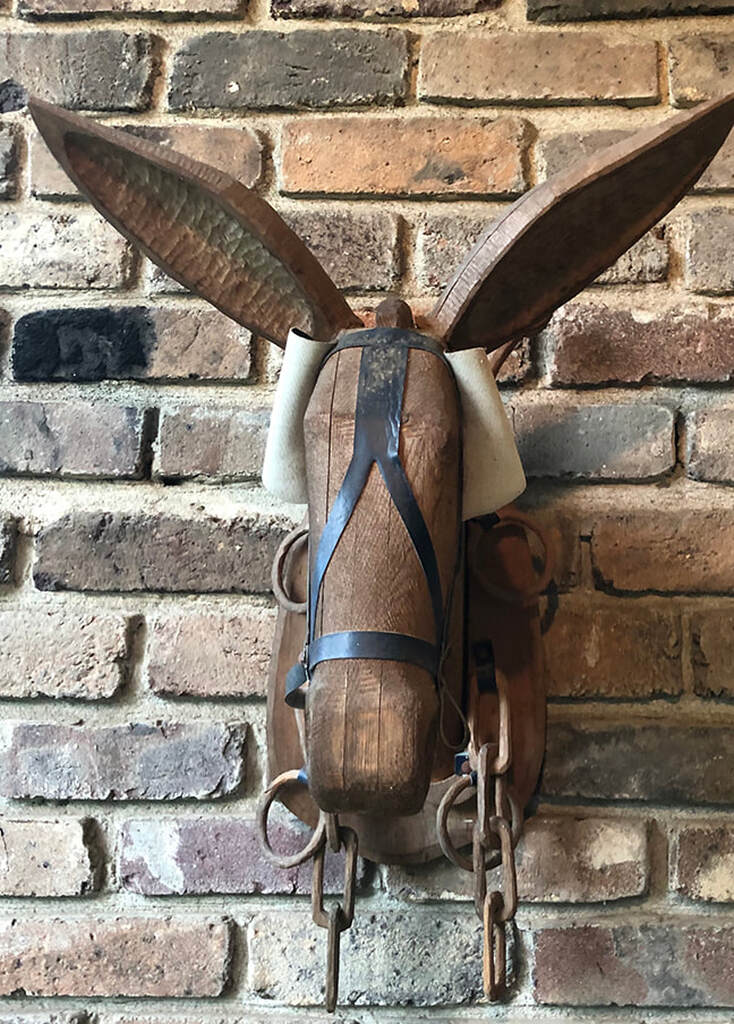 Unless otherwise noted, the Kathryn Tucker Windham blog is written by her daughter, Dilcy Windham Hilley. Mother had a fascination with mules. I don’t know why, but mules, like so many things, interested her. As children, my brother and sister and I passed the time on car trips “stamping” gray mules. Mother taught us the technique. If you see a gray mule---and they are plentiful in the Black Belt---you lick your thumb, plant it in the palm of your hand, and stamp the palm with your fist. It’s supposed to bring you good luck. Years ago, I heard of a man in north Alabama who carved mules. It was important that I secure one for Mother’s upcoming birthday. After some searching, I found the man and bought two beautiful carvings, one a four-mule-drawn wagon in intricate detail. The other was a life-size mule head with chain and harness. Now I don’t think this little man had hunting trophies in mind when he carved the mule, but it looks very much like something a hunter would have in his man cave. Mother mounted her mule trophy on her den wall. After she died, I brought it to my house where it lives on my front porch. Mother liked mules so much that she wrote a small book called Count Those Buzzards. Stamp Those Gray Mules. It recalls superstitions of the South. She illustrated the book herself with cover art of buzzards and mules. Sadly, it is out of print, so if you have a copy, treasure it. And remember, for good luck, stamp those gray mules. Unless otherwise noted, the Kathryn Tucker Windham blog is written by her daughter, Dilcy Windham Hilley.
I’m cooking my mama’s cornbread recipe today and remembering her humor and wisdom. I don’t know what she’d say about this topsy-turvy time, but I do know she’d find a way to laugh, even in the sorriest of times. As she grew old and surrendered driving, people took to bringing her “gifts” of all sorts to lift her spirits. Figs by the bucket load and dewberries arrived. She made preserves and cobblers and everything she could think of not to waste the commodities. She got pillows embroidered with platitudes which she re-gifted to people who might be appreciative. She even got rattlesnake rattles that she truly liked. After she died, we found them among her treasures along with dirt dauber nests and “very good” telephone pole insulators. I think these days about what she might have gotten. Probably more blue bottles for her tree to ensure good luck during this rough patch. Probably more buckeyes for the same reason. (You know you have to rub them on your nose and get your oils on them so they know they belong to you.) She likely would have handed out those buckeyes so others might share the hope of good fortune during this time. I know she would have worried about her family, now all gone except for me. But I expect, when this dark curtain rose again, she would have gone right straight to Hancock’s BBQ in Selma. She would have ruched the paper from her straw, dripped a droplet of sweet tea on it, and turned it into a slithering snake. Because it would be time to laugh again. 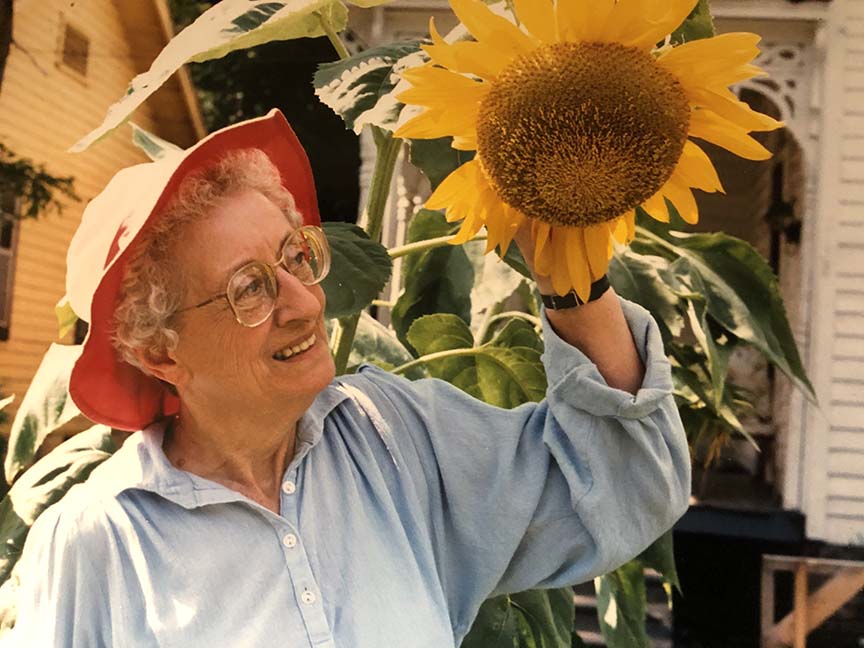 Unless otherwise noted, the Kathryn Tucker Windham blog is written by her daughter, Dilcy Windham Hilley. Most everyone has a treasury of family sayings. They aren’t the commonly-used phrases everybody knows. These come from some happening that’s legendary in family stories. My mother had a trove of sayings. Many came from her childhood in Thomasville, Alabama, especially from her aunt, Bettie Forster, ---Aunt Bet we called her---the postmaster in Thomasville for decades in the first half of the 1900s. (Aunt Bet refused to be called a postmistress. “I,” she said, “am no one’s mistress.) One day one of her well-to-do acquaintances stopped by the post office to say hello to Aunt Bet. My aunt greeted her and admired an expensive ornate ring the woman was flaunting about. The woman lifted her nose and, in a trifling tone, said “Oh, it’s just a little piece of brass and a little piece of glass.” Family saying. But one of my favorite sayings came from my mother and likely came from hers and hers before her. I don’t know the origins of this saying, but, if something on the table was to hot to eat, my mother’s advice always was, “Heat will cool if greed will wait.” Family saying. Unless otherwise noted, the Kathryn Tucker Windham blog is written by her daughter, Dilcy Windham Hilley.. Maybe Church Street United Methodist Church in Selma had a nursery. I don’t have any memories of being in it. What I remember is being a squirmy, ill-tempered child in church. Church is something of a pastoral prison for young children and not in the bucolic sense. It’s boring, it’s long, it’s paralyzing confined. The pews are hard. The only bearable chapters are the offertory and the monthly communion service. And, of course, the benediction when the prison doors open. (God forbid you have to sing every verse of “Amazing Grace” as the closing hymn.) Mother found a way to settle this prisoner during worship. In her purse, my mother brought little treasures she’d slip discreetly to me when the sermon started. She would hand me a little brown, hinged box that held a miniature family of chickens---rooster, mama hen, and three baby chicks. This treat was reserved for Sundays only. I would make a little barnyard in the Methodist hymnal where the chickens could scratch until they quietly flew over to the offering envelope racks. If I tired of the chickens, Mother had a little green box that made my three-year-old heart spasm. It held the tiny bisque girl-and-boy dolls she played with as a child. The chickens are long gone. I found the dolls in a box in the basement last week. The tissue in the box if fragile. It smells of love and anticipation. Unless otherwise noted, the Kathryn Tucker Windham blog is written by her daughter, Dilcy Windham Hilley. When the Windham children were growing up, we often ate the school cafeteria lunches. You remember those. The misshapen mystery meat, the green beans the consistency of mashed potatoes, the mashed potatoes the consistency of pudding, the pudding the consistency of mystery meat. You remember those. I still remember the orange meal ticket that included a carton of milk. But the meals were cheap and filling, and that was important to my single mother raising three children. Sometimes, if it was close to payday and money was tight, Mother would pack sack lunches for us. Now, generally they were something along the lines of a boloney or olive loaf sandwich, an orange, and a cookie or two. But one day, things in the sack lunch were not so ordinary. To her dying day, my mother swore this did not happen, but it was my sack lunch, and I know it did. That day, I found a seat among the most popular girls, the cheerleaders, the class beauties, the golden children. I opened my sack lunch, and, to my horror, there it was…a “sandwich” made of two slices of fruitcake glued together with pimento cheese. Oh, yes it was, and my universe imploded. Decades later, as Thanksgiving approached and the Claxton fruitcakes appeared, I felt a nostalgic urge to spread some holiday pimento cheese on a slice. It’s surprisingly good. Try it. If you don’t like it, you can put it in some kid’s sack lunch. Unless otherwise noted, the Kathryn Tucker Windham blog is written by her daughter, Dilcy Windham Hilley. My mother grew up in Thomasville, Alabama, not far from the heart of downtown. It was a small country town, so it wasn’t especially surprising that her family raised chickens in their backyard. Mother used to tell how their cook and Mother’s very heart, Thurza, would twist a hen’s neck like a wringer washer and prepare it for Sunday dinner. (Dinner, of course, is the meal served after breakfast and before supper. At least it used to be that way in the South before it somehow got confused with the evening meal.) The women in Mother’s family---all much older than she---always referred to a chicken thigh as the “second joint.” I suppose it was a more genteel reference to such a private part of the anatomy, though apparently the breast was not considered soft-core. Mother also spoke of a particularly vicious rooster that ruled their yard and would peck her bare heels if she wasn’t quick to escape him. But one of my favorite tales my mother told was about a neighbor who dropped in uninvited fairly regularly, often when Thurza was preparing dinner. He was what Mother called a dullard, a word she reserved for only the most tedious people. After one particularly trying morning with the neighbor, Mother was in the kitchen complaining to Thurza about the dolt. Thurza never turned from the stove as she said to Mama, “That man ain’t got sense enough to shoo the chickens.” And that has become a favorite family phrase. |
Archives
November 2022
We welcome YOUR comments on our blog posts. You will see a "comments" link at the top and bottom of each page. Feel free to join in!
Want to get alerts when new posts are added to this Blog? Visit and "Like" our Facebook page and you will see the new posts there when they are added! Click here to visit the new Kathryn Tucker Windham Facebook Page. |
|
"Some people are important to intellectuals, journalists, or politicians, but Kathryn Tucker Windham is probably the only person I know in Alabama who is important to everybody."
–Wayne Flynt, Professor Emeritus in the Department of History at Auburn University. |
CONTACT US
Dilcy Windham Hilley Email: [email protected] © 2023 - Dilcy Windham Hilley. All rights to images belong to the artists who created them. Site by Mike McCracken [email protected] |
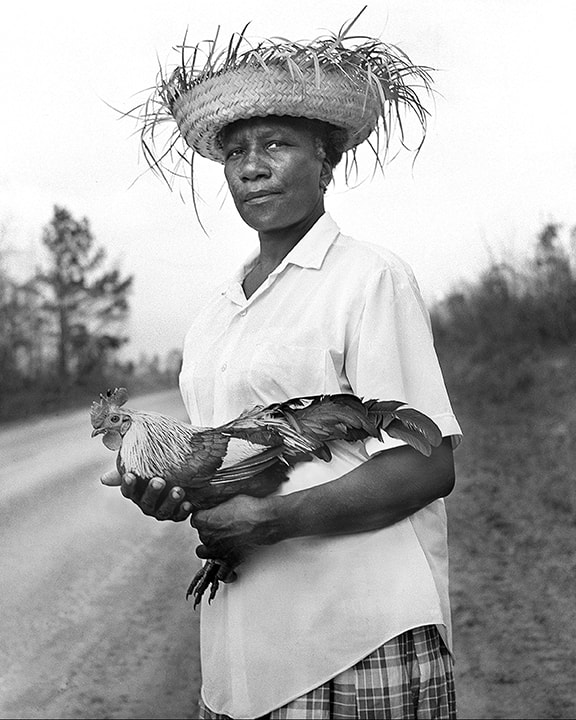
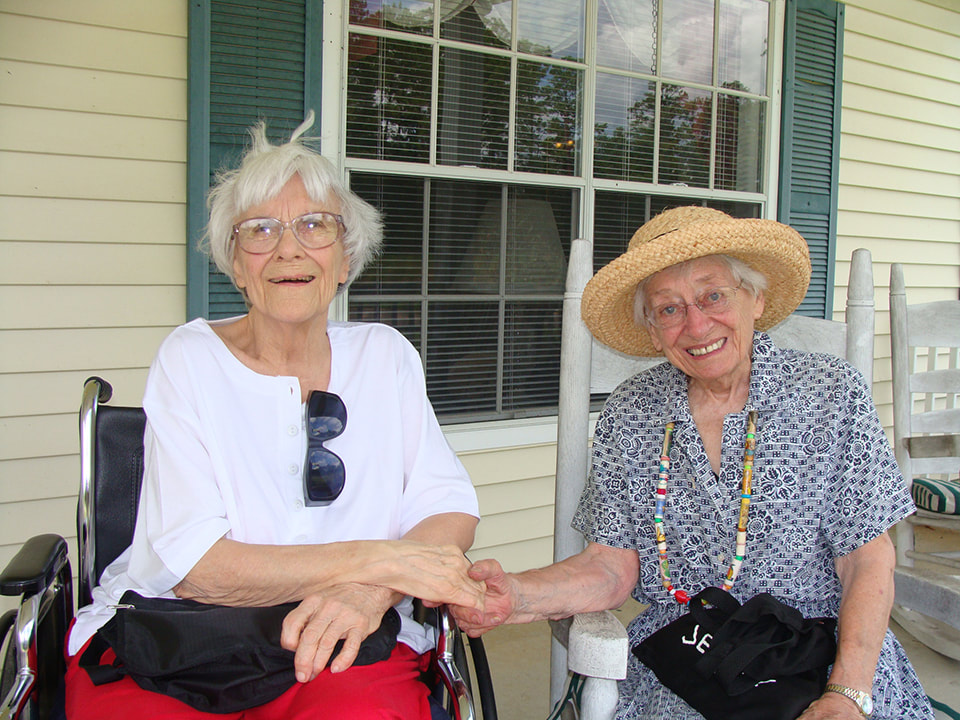
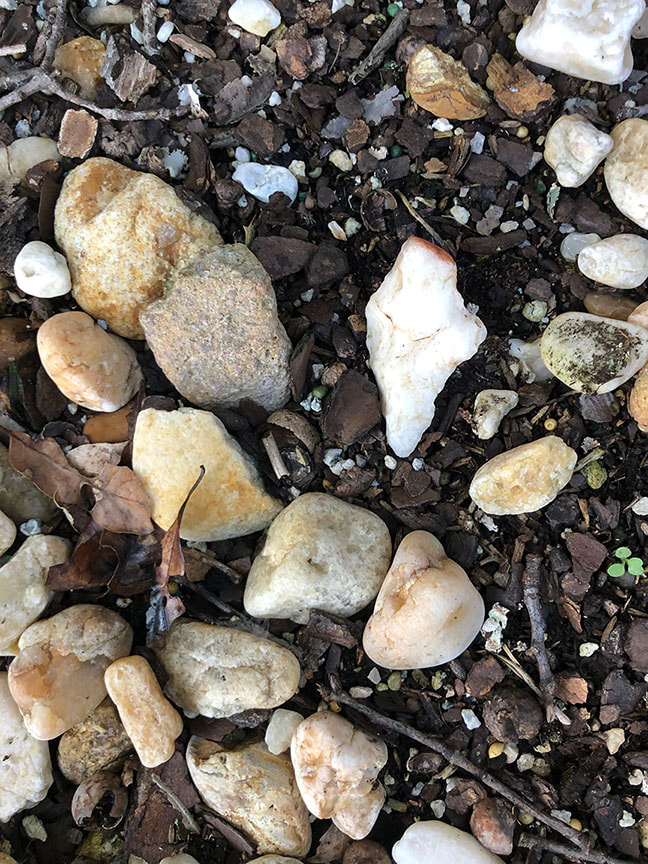
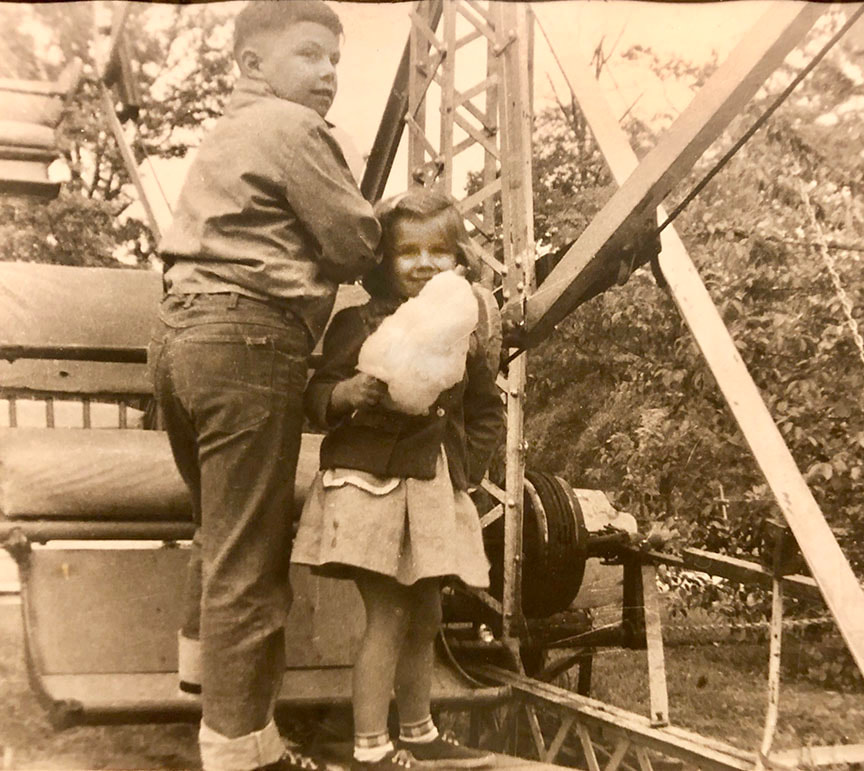
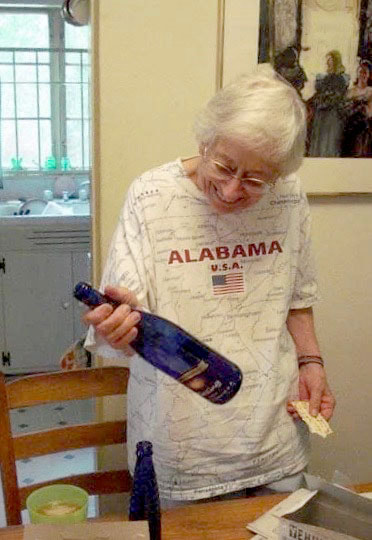
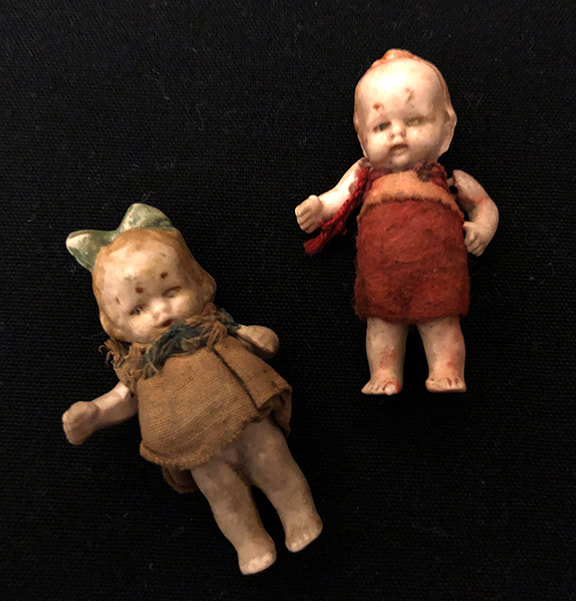
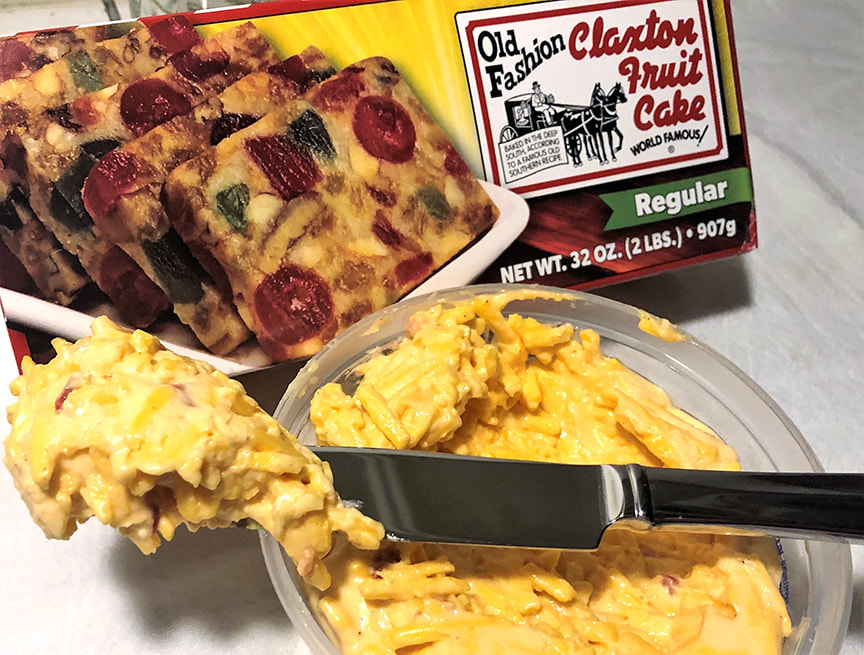
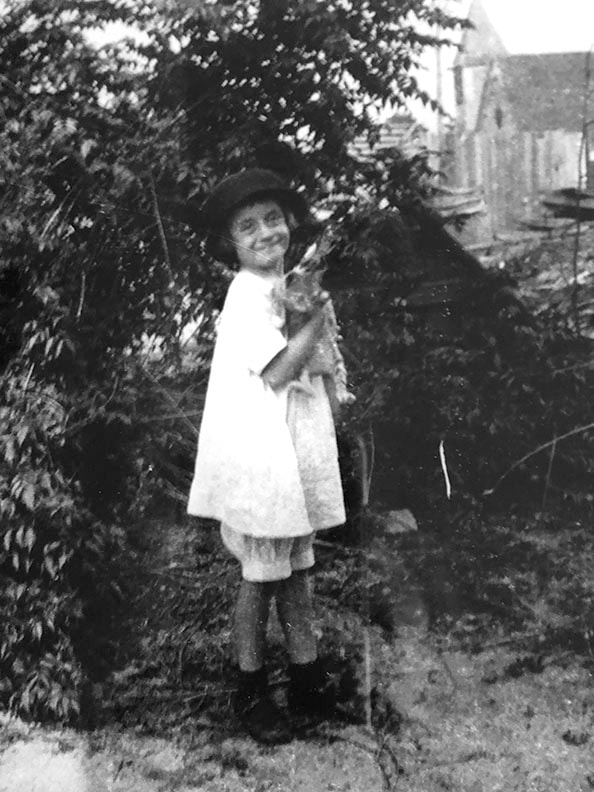
 RSS Feed
RSS Feed
